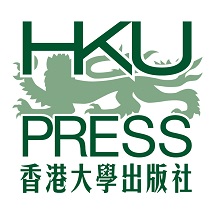9789888754052
Distributed for Hong Kong University Press
Rebel Men
Masculinity and Attitude in Postsocialist Chinese Literature
A discussion of masculinity in post-1989 Chinese literature.
Masculinity, fast-changing and regularly declared to be in the throes of crisis, is attracting more popular and scholarly debate in China than ever before. This book probes the link between literary rebellion and manhood in China, showing how, as male writers critique the outcomes of decades of market reform, they also ask: how best to be a man in the new postsocialist order? In this first full-length discussion of masculinity in post-1989 Chinese literature, Pamela Hunt offers a detailed analysis of four contemporary authors: Zhu Wen, Feng Tang, Xu Zechen, and Han Han. In a series of readings, she explores how all four writers show the same preoccupation with the figure of the man on the edges of society. Drawing on longstanding Chinese and global models of the maverick, as well as marginal masculinity, their characters all engage in forms of transgression that still rely heavily on heteronormative and patriarchal values. Rebel Men argues that masculinity, so often overlooked in literary analysis of contemporary China, continues to be renegotiated, debated, and agonized over, and is ultimately reconstructed as more powerful than before.
Masculinity, fast-changing and regularly declared to be in the throes of crisis, is attracting more popular and scholarly debate in China than ever before. This book probes the link between literary rebellion and manhood in China, showing how, as male writers critique the outcomes of decades of market reform, they also ask: how best to be a man in the new postsocialist order? In this first full-length discussion of masculinity in post-1989 Chinese literature, Pamela Hunt offers a detailed analysis of four contemporary authors: Zhu Wen, Feng Tang, Xu Zechen, and Han Han. In a series of readings, she explores how all four writers show the same preoccupation with the figure of the man on the edges of society. Drawing on longstanding Chinese and global models of the maverick, as well as marginal masculinity, their characters all engage in forms of transgression that still rely heavily on heteronormative and patriarchal values. Rebel Men argues that masculinity, so often overlooked in literary analysis of contemporary China, continues to be renegotiated, debated, and agonized over, and is ultimately reconstructed as more powerful than before.
164 pages | 6 x 9 | © 2022
Transnational Asian Masculinities
Asian Studies: East Asia
Literature and Literary Criticism: Asian Languages
Reviews
Table of Contents
Acknowledgements
1. Introduction
2. Boring, Useless: Masculinity and Crisis in Zhu Wen’s Fiction
3. The Dense Scent of Hormones: Phallic Creativity in Feng Tang’s Beijing Trilogy
4. Floating Men: Xu Zechen’s Migrants
5. The Right Road: The Han Han Phenomenon
6. Conclusion: Rebel Men
Glossary
Bibliography
Index
1. Introduction
2. Boring, Useless: Masculinity and Crisis in Zhu Wen’s Fiction
3. The Dense Scent of Hormones: Phallic Creativity in Feng Tang’s Beijing Trilogy
4. Floating Men: Xu Zechen’s Migrants
5. The Right Road: The Han Han Phenomenon
6. Conclusion: Rebel Men
Glossary
Bibliography
Index

